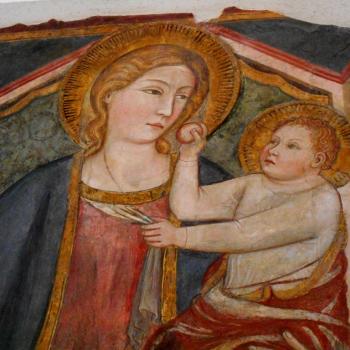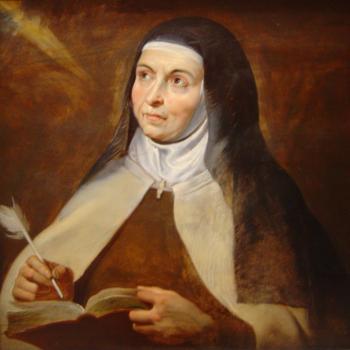Back over a decade ago when the debate over climate change was starting to heat up, a favorite talking point criticizing the Bush administration went like this: Evangelicals, of which Bush was one, would never care about climate change because they would either not believe that the pollution and degradation of the world by human hands could be God’s plan or, perhaps more chillingly, that climate change was simply a process of the “end times” bringing humanity closer to its end.
Neither of these were particularly accurate. Climate change denial was and is rooted in a business-oriented critique launched not primarily or solely by Evangelicals but by those who have money to lose by increased environmental regulations. Those who are skeptical of climate change and the disastrous and disturbing warnings issued by the world’s scientists do it more out of tribal identity with conservatives than an engagement with the evidence.
We are bad stewards of the earth. We have contributed to weather cycles that are more dangerous and unpredictable than before. We are gambling with our children’s futures for short term benefits. We are prioritizing economic platitudes over life. We are ignoring the fact that our relationship to God’s earth is a reflection of our relationship with God. We too easily forget that nature is a divine language written by God.
Yet, as Catholics, we are never able to be fully at home in this world either. As a scholar of the European Renaissance, I keep thinking of a time when the environment, in a broader sense, did become deeply threatening to human life: the plague year of 1348. Petrarch, the greatest Italian writer of the period, describes what it felt like to be alive as a third of Europe perished:
“The year of 1348 left us alone and helpless, it did not deprive us of things that can be restored by the Indian or Caspian or Carpathian Sea. It subjected us to irreparable losses. Whatever death wrought is now an incurable wound. There is only one consolation in all this: we too shall follow those who preceded us. How long our wait will be I do not know; but this I do know, that it cannot be long. And however short the wait may be, it cannot avoid being burdensome.” (Familiares 1.1)
These are words written by a man living in a traumatized society. This trauma was so profound it led Petrarch to constantly meditate on death and the inadequacy of life on earth. The opening poem of his famous Fragmenta, 366 poems about the poet’s love for Laura, Death, and conversion away from the world, ends with the assertion that Petrarch knows “that anything that pleases on earth is a brief dream.”
Petrarch’s position is understandable and it is also a literary performance meant to evoke memories of Augustine’s Confessions, but it reflects a tragedy of human experience, a loss so great that the earth itself is a reminder of the trauma they witnessed.
The modern world has seen its share of traumas and yet we are still lulled into a complacency that tells us that climate change is either not a real problem or a problem so beyond our skills (whether political or scientific) that we can do nothing.
As Petrarch knew well, the Catholic is never at home in the world, but the world is the place where we come to know God. It is where we are converted, tested, and loved. To waste and destroy the world, to bury our many talents in polluted ground, is not to live to our best ideals. Climate change is as much the product of spiritual pollution as it is a product of chemical pollution.
As we know, our faith calls us beyond politics, beyond the scripts of partisanship. And, as Petrarch knew about his own tragedies in the plague year, the losses we would suffer will be irreparable.












